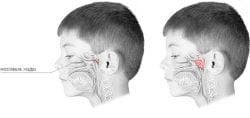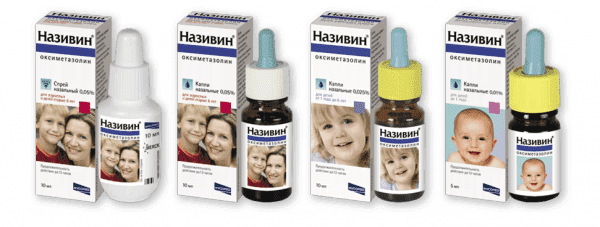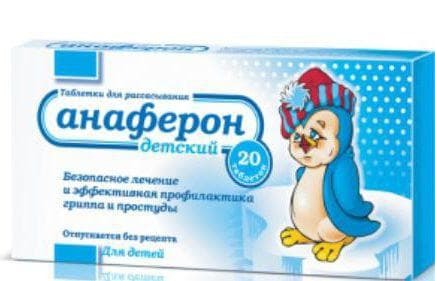
The swelling of the nasal mucosa is a phenomenon, although not deadly, but very unpleasant. There may be a mucosal edema in the nasal cavity for various reasons: from colds and infections to allergies.
This symptom delivers a tangible discomfort: leads to difficulty breathing, drying out of the mouth, sensation of foreign body in the nose and other unpleasant manifestations. In this article, we will examine the features of the edema of the nasal mucosa, focusing on the causes of its onset.
Content
- 1 Description
- 2 Causes adult
- 2.1 Infection
- 2.2 Allergy
- 2.3 Injuries
- 2.4 Congenital
- 2.5 Neoplasms
- 2.6 Pregnancy
- 2.7 vasoconstrictive drops
- 2.8 Ecology
- 2.9 Weak immunity
- 2.10 Postoperative period
- 2.11 Dryness of air
- 3 Reasons for children
- 3.1 Adenoids
- 3.2 Allergy
- 3.3 Cold
- 3.4 Injury
- 3.5 Subcooling
- 3.6 Congenital structure nasopharynx
- 3.7 Physiological edema
- 4 Symptoms
- 5 Treatment
- 5.1 vasoconstrictive
- 5.2 Antihistamines
- 5.3 Lavages
- 5.4 Antiviral
- 5.5 Surgery
Description
immediate cause mucosal edema of the nasal cavity - the dilation of bloodblood vessels to the body. Almost always, swelling is combined with an inflammatory process. To the rum of this, usually a symptom is accompanied by a runny nose, sneezing, nasal congestion and other manifestations of respiratory infection.
The edema of the nasal mucosa itself is not a disease, but only a symptom. Therefore, in treatment, emphasis should be placed on eliminating the underlying ailment. If you do not pay attention to puffiness, you may develop a serious complication, such as brain hypoxia. To avoid such consequences, attention should be paid to the treatment of this troubling and unpleasant symptom.
On the video, the nasal mucosa swells:
Reasons for the adult
What diseases and pathologies can cause swelling of the nasal mucosa in an adult.
Infection
The most likely and most common cause of the symptom. Infection is most often of a cold character, has either a viral or bacterial nature. There is swelling usually with hypothermia and reduced immunity.
Allergy

Seasonal natural manifestations like poplar fluff, as well as off-season allergens: dust, wool, foods and others, often cause swelling of the nasal mucosa. This symptom gives allergic people a lot of unpleasant sensations: from the stuffiness of the nose and the inability to breathe normally until the sensation of smell completely disappears, and the rhinitis that can not be eliminated. But how to determine if an allergy or a cold has appeared is described in detail in this article.
In this case, treatment is performed with antihistamines. Modern means of a wide spectrum are safe enough, and are capable to eliminate an allergy even at its strong displays.
Injuries
Sometimes the nasal mucosa can be mechanically damaged. As a result of such damage to the epithelium, swelling of the tissues develops, which later can even lead to suppuration.
Congenital anomalies of
If a person has a curvature of the nasal septum or too narrow nasal passages from birth, the likelihood of constant appearance of mucosal edema increases.
Neoplasms
Sometimes polyps appear in the nasal passages - they are in fact harmless, but they cover the lumen of the courses of education. In addition, they cause mucosal edema. The same symptom can cause and tumors - both benign, and cancerous.
Pregnancy
Sometimes hormonal changes in the body in the first trimester leads to edema. But in this case, the symptom will not be strongly expressed, and it is completely tolerated even without treatment. 
Vasodilating drops
Uncontrolled intake of these drugs increases the likelihood of edema of the mucosa, and leads to a chronic inflammatory process in the nasal passages.
Ecology
An unfavorable environment can also provoke the development of mucosal edema. Dust, car exhausts, gases, chemicals: all this does not benefit the respiratory system as a whole, and the nasal mucosa in particular.
Weak immunity
This fact is the cause of many diseases, not only edema of the mucosa. If you know that things are not very healthy with immunity, then it is better not to provoke the appearance of diseases once again: 
dress on the weather, eat properly, do not contact the vectors of the virus.
Postoperative period
If a person is made rhinoplasty, or another surgery has been performed on the nose, the appearance of puffiness in this area is quite common. In this case, puffiness is not treated - after a few days it begins to subside, and soon passes completely by itself.
Dryness of air
Also one of the most common causes of edema. Often, for this reason, the noses swell in winter, when 24-hour batteries of heating strongly dry the air in the premises.
 But what is the best way to treat tonsillitis during pregnancy, and what are the best medicines, is described in this article.
But what is the best way to treat tonsillitis during pregnancy, and what are the best medicines, is described in this article.
How laser septoplasty of the nasal septum is done, and how effective it is, is described in great detail in this article.
Why there is pain in the ear after a cold, and what medicines are the most effective, is described in this article: http: //prolor.ru/u/ simptomy-u / bol-v-ushax-pri-prostude.html
And here's how to use the ointment under the nose for colds forchildren, and how to choose it right, is described in this article.
Causes in children
Consider what factors cause the same symptom in children.
Adenoids
This cause is peculiar to childhood, in adults it occurs infrequently. With adenitis( inflammation of the tonsils) swelling of the nasal mucosa - a common occurrence, and one of the symptoms of a common disease. And here is how treatment without surgery of adenoids of 3 degrees occurs, is told in this article. 
Allergy
Otherwise, this type of edema is called allergic rhinitis. Unfortunately, it can occur even at a very young age: this peculiar disease does not make allowances for age. An allergic reaction to dust, fluff, wool and other irritants may well cause swelling of the mucosa even in the baby. But how is the treatment with folk remedies for allergies and nasal congestion described in this article.
Cold
A common cause of edema. With various colds of any kind and nature, the runny nose and the swelling of the mucosa associated with it are common. But how to increase immunity with frequent colds to an adult is described in great detail in this article. 
Injury to
Children can also injure the mucous by mechanical means. Most often, they damage themselves by placing a small toy detail in the nose.
Subcooling
As mothers try, however, it is sometimes impossible to keep track of whether the child has dressed correctly. In addition, the children during a walk can wander through the puddles or from the heart to play in the snow. As a result of such walks, there is often a runny nose, a cold, and a puffiness associated with the mucous nasal passages.
Congenital anomalies in the structure of the nasopharynx
In this case, the child's swelling of the mucosa may occur due to atypical narrowness of the nasal passages or because of a curved septum. Only surgical operation can help here: no drops or medications will solve the problem.
Physiological edema
This cause is peculiar to children in the first months of life. The problem is that at the birth of a baby the mucosa of his nose needs some time( up to several months) to adapt to external conditions. The swelling of the mucosa during this period may mean that the mechanism of its functioning has not yet been activated. 
Problems with the nasal mucosa due to this reason often appear in children on artificial feeding. The rare airing of the child's room, and the equally infrequent stay of the baby in the fresh air are also factors contributing to the development of edema of the mucous in this tender age.
Symptoms
How the swelling of the nasal mucosa manifests itself, we learn
- Redness and visible swelling of the epithelium of the nasal passages.
- The patient feels discomfort, dryness, burning sensation in the nose.
- Nasal congestion and difficulty breathing are common diseases satellites.
- Heaviness of the head. Most of all, this weight is felt in the forehead. In addition, a headache is also likely.
- Perhaps tearing, sometimes literally "on level ground".This symptom often accompanies the swelling of the nose for allergic rhinitis.
- Sneezing and coughing are also quite likely.
- Sometimes mucosal edema can be combined with high fever. Such a symptom is usually associated with a cause of an infectious cold.
- Breathing becomes specific: dyspnea appears, inhalations and exhalations are uneven, a hoarse voice is heard.
- The sense of smell disappears, sometimes completely.
- The voice becomes hoarse, hoarse, and sometimes it disappears completely.
- A severe runny nose often accompanies this symptom. But sometimes, in contrast to a large amount of mucus secreted, the nose can dry out completely. And all this against the background of swelling.
Other symptoms are possible, more specific. For example, if you injure the nasal mucosa, you will most likely have painful sensations in this area. The degree of pain will depend on the severity of the injury itself.
Allergic rhinitis is often accompanied by a sensation of perspiration in the throat, as well as dry coughing, inflammation of the eyes: they blush, swell.
If the swelling of the mucosa has passed into a chronic, neglected stage, it may develop a severe symptom such as brain hypoxia. In this case, the behavior of a person changes: he becomes distracted, extremely inattentive, "detached from life."Along with all these troubles, the patient disables the ability to work, and
insomnia also appears. Treatment
What therapies will help to eliminate swelling of the nasal mucosa.
Vasodilating
Drops with this effect provide invaluable help in mucosal edema. Especially popular are the following drugs:
- Nazivin sensitive for children;

Nazivin for Children
- Naphthyzine;

- Sanorin;
- Tizin et al.
Attention: it is impossible to dig in drops for more than five days: the mucosa has an "addiction" to powerful support, and it ceases to fight on its own with irritants and infection.
Antihistamines
Drops with antiallergenic action will help to remove symptoms of congestion, and get rid of mucosal edema. They will be useful not only in case of allergic rhinitis, but also in swelling caused by other causes. 
Flushing
To render moisturizing and anti-inflammatory effects on the mucous membrane, special solutions with sea water are used for antiseptic treatment. They are rinsed nasal passages.
Liquid for washing can be prepared and at home: you only need to dilute a teaspoon of sea salt in a liter of boiled chilled water.
Antiviral
If edema is caused by a cold infection, antiviral drugs should be taken. It is better to use safe agents that simultaneously increase immunity: such as Anaferon .

Anaferon for children
Surgical intervention
This method of therapy is used when medication can not help: usually with curvature of the nasal septum and with congenital narrowness of auditory strokes. In addition, surgical removal requires and neoplasm: tumors, polyps, proliferation of adenoids.
All types of surgery, except for removal of adenoids, are carried out under general anesthesia. Most often, the operation is performed by a laser, but more traditional methods are possible.
We examined the features of the edema of the nasal mucosa. As you can see, the reasons for this phenomenon are quite diverse, but the methods for eliminating puffiness for any reason are similar. We recommend that you first know exactly why the mucus has swelled, and only then start taking therapy. A competent approach to treatment and a preliminary consultation of a doctor will help you quickly get rid of an annoying and unpleasant symptom.
